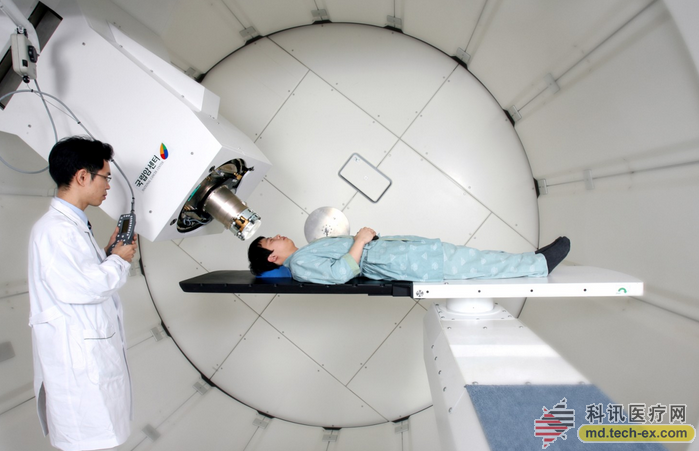Release date: 2016-01-25
On the 19th of this month, the first hospital cancer specialist in the United States, the MD Anderson Focal Center of the University of Texas, and the Thai-based Taihecheng Medical Group announced that they will set up a referral office in Beijing to help them seek free proton therapy. Chinese patients go to the United States for medical treatment, hoping to cross the borders and language barriers to bring the best medical experience for Chinese patients. Future cancer hospitals established in Beijing, Shanghai and Guangzhou in China will also introduce advanced technology and management experience from the MD Anderson Proton Center.

According to China News Network on January 20th, proton therapy is the most advanced tumor radiotherapy technology in the world. By releasing a large amount of energy into tumor lesions to destroy cancer cells and even eliminate tumors, there are fewer damages and side effects on surrounding normal cells. It has obvious advantages in head and neck, ophthalmology, chest, digestive tract tumors and solid tumors in children. Due to its very expensive main equipment, it is not popular around the world.
Cancer is the second leading cause of death worldwide, and the World Health Organization (WHO) released the Global Cancer Report 2014, which claims that cancer patients and deaths worldwide are increasing uncomfortably. The report predicts that global cancer cases will show a rapid growth, from 14 million in 2012 to 19 million in 2025, and will reach 24 million by 2035, of which China will account for 21.9% of the global total. Some analysts pointed out that proton therapy has good cancer-killing effect and small side effects. As an internationally recognized "drug curer", it is backed by China's huge market demand. Under the background of the country's strong support for precision medicine, listed companies with core technologies are expected to set off. The new wave of anti-cancer revolution, related stocks deserve special attention.
According to the Securities Times, in July 2015, the National Health and Family Planning Commission cancelled the approval of proton heavy ion clinical application, which opened the upsurge of capital investment proton therapy. More than 40 medical institutions in China are applying to build proton therapy centers. . However, there are currently only two proton treatment centers in China, and the market gap is huge.
In the domestic market, at least the following are secretive in proton therapy.
Meiya Optoelectronics is building a platform for the detection and treatment of cancer and cancer, and proton therapy is an important focus of the company. In July 2015, the company signed the Strategic Cooperation Framework Agreement with the Nuclear Energy Safety Technology Research Institute of the Hefei Institute of Materials Research of the Chinese Academy of Sciences to promote the implementation of high-end precision radiotherapy industry and related medical equipment industry represented by proton therapy. In-depth development in training, continuous innovation, and industrial integration will accelerate China's localization in high-end radiotherapy and other fields. In November 2015, the company signed the "Strategic Cooperation Framework Agreement" with the Shanghai Institute of Bone Cancer. Based on the current development of high-end precision radiotherapy system for proton radiotherapy, Meiya Optoelectronics Co., Ltd. jointly developed high-precision proton radiotherapy for bone tumor adjuvant therapy. Treatment system.
Phoenix shares announced in December last year that the company's controlling shareholder, Phoenix Group, agreed to participate in the establishment of Jiangsu Phoenix Cancer Hospital and agreed to transfer 10% of the capital contribution to the company in advance, within the agreed scope of investment. Participated in the establishment of Jiangsu Phoenix Cancer Hospital, and then expects the hospital to operate stably and expand the company's shareholding ratio when conditions are ripe. According to the framework cooperation agreement signed by Phoenix Group and Jiangsu Cancer Hospital, the three parties jointly funded the establishment of Jiangsu Proton Heavy Ion Hospital (tentative name). The Phoenix Group invested and controlled the company in cash. The agreement stipulated that Phoenix Group should implement according to the project. The process and the need to inject Phoenix shares when conditions are ripe. The company is undergoing a strategic transformation of the pension industry and the big health industry. With the support of the controlling shareholder, proton therapy is expected to become a new bright spot for the company.
On October 19, 2015, Hengkang Medical signed the Strategic Cooperation Framework Agreement with Chengdu University of Traditional Chinese Medicine. The two parties intend to reach a preliminary intention in Chengdu, China Affiliated Tumor Hospital and Proton Therapy Center. The two sides intend to jointly establish a large-scale oncology hospital in Chengdu - the affiliated tumor hospital of Chengdu University of Traditional Chinese Medicine. The hospital is an independent legal person and a for-profit hospital, and Hengkang Medical is the controlling shareholder. The two sides intend to newly establish the Proton Therapy Center of the Cancer Hospital of the University of Traditional Chinese Medicine. It is a branch of the Cancer Hospital. It introduces foreign advanced proton accelerators and high-end radiological diagnosis and treatment equipment, and at the same time sets up a Kangyang Center to give full play to the advantages of traditional Chinese medicine rehabilitation and carry out proton therapy for cancer patients. After rehabilitation, the hospital will be built into a domestic first-class oncology hospital.
Source: China Securities Network
Vitamins,Vitamin B5,Vitamin D,Vitamin B4,Vitamin K
PYSON Co. ,Ltd. , https://www.pysonbio.com